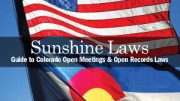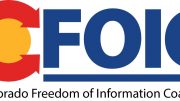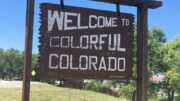By Jeffrey A. Roberts
CFOIC Executive Director
A Pagosa Springs attorney who has filed nearly 100 open-government lawsuits in the past several years has standing to sue the Elizabeth school board for alleged open meetings law violations even though he lives 300 miles away, the Colorado Court of Appeals ruled Thursday.
Shutting down arguments made by the school district, the Colorado Association of School Boards and the Colorado Rural Schools Alliance, the state’s second-highest court concluded that the Colorado Open Meetings Law “creates a legally protected interest in favor of at least every natural person in Colorado — including the plaintiff here — in having public bodies conduct public business in compliance with the OML.”

The school district had accused Matt Roane of “taking advantage of small rural communities and school districts for alleged violations that have not impacted him at all.” But the district “points to no language in the OML — and we see none — that compels the conclusion that Roane has no legally protected interest in an open meeting in the district unless he also proves a connection with that district,” Judge Eric Kuhn wrote for a three-judge appellate panel.
“While the School District’s frustration is clear, the provisions of the OML demonstrate that the General Assembly intended a broad right to a transparent government for everyone in Colorado,” he added.
Roane, who has filed just one pro se open-government lawsuit so far in 2024, views his role as a “private attorney general,” citing Colorado case law that refers to citizen-litigants “who, through the exercise of their public spirit and private resources, cause[] a public body to comply with the Open Meetings Law.”
In the Elizabeth school district case, which can go forward because of Thursday’s ruling, Roane is challenging the legality of a school board executive session held Apr. 10, 2023, in which the board allegedly failed to publicly announce the “particular matter” it intended to discuss behind closed doors, as the law requires. His complaint says the board’s failure to comply with the open meetings law “prevented Mr. Roane from witnessing the Board conduct public business openly in conformity with the statute.”
The school district and the school associations claimed that Roane hasn’t “suffered an injury in fact” and that he “is not genuinely interested in the information” about the Elizabeth school board’s executive session. “Instead,” the associations wrote in an amicus brief, “his primary concern is in ensuring compliance with the Open Meetings Law. Although this may be an admirable goal … it is not sufficient grounds for standing under the Colorado law.”
But in upholding a district court ruling, the Court of Appeals pointed to language in the open meetings law, added in 2014, that “[a]ny person denied or threatened with denial of any of the rights that are conferred on the public by (the statute) has suffered an injury in fact and, therefore, has standing to challenge the violation.”
“That includes, broadly, every person’s right to have public bodies conduct public business in compliance with the statute, and in the context of this case, Roane’s right to at least have notice of the subject matter of the legal advice the School District intended to seek during the April 10 executive session,” Kuhn wrote.
“Whether or not Roane credibly alleged having an interest in — or a use for — the information discussed in the underlying executive session doesn’t alter the nature of his legally protected right,” the 32-page published opinion adds.
In February, the Colorado Freedom of Information Coalition and the American Civil Liberties Union of Colorado submitted a brief in support of Roane’s position, arguing that denying him standing because he doesn’t live in the school district’s boundaries “would drastically and substantively alter the protections” of the open meetings law, not only for him, “but for all persons.”
The law’s “permissive” legal-standing requirements “are essential to ensuring that journalists, advocates, watchdogs, public interest organizations, and members of the public can access public meetings with ease and challenge barriers when they arise,” CFOIC and the ACLU contended.
The legislature “chose to create a broad right with a statewide reach,” the Court of Appeals opinion says.
“If the General Assembly wanted to limit the scope of legally protected rights under the OML based on the geographical reach of the public body involved or its relationship to the person, it would have employed language to do so,” it adds.
Roane’s pro se law practice also was the target of unsuccessful 2023 legislation. Gov. Jared Polis vetoed a watered-down version of House Bill 23-1259, which as introduced have allowed school boards and other local public bodies to “cure” an inadequately announced closed-door meeting at a subsequent meeting, and anyone who unsuccessfully challenged an executive session announcement in court would have been liable for the government’s court costs and attorney fees.
Follow the Colorado Freedom of Information Coalition on X (formerly Twitter) @CoFOIC. Like CFOIC’s Facebook page. Do you appreciate the information and resources provided by CFOIC? Please consider making a tax-deductible donation.




